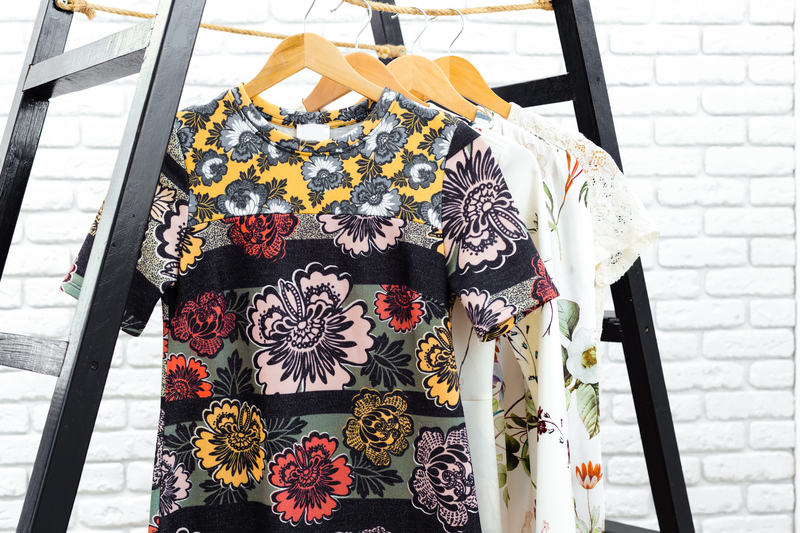Eco-Friendly Recycling Tips for Old Clothes
Recycling old clothes is more than just a trend--it's a vital step towards a sustainable future. If your wardrobe is overflowing or you're wondering what to do with those faded jeans and worn-out t-shirts, it's time to discover eco-friendly recycling tips for old clothes. This comprehensive guide will show you how to give your garments a second life while minimizing environmental impact.

Why Recycle Old Clothes?
Each year, millions of tons of textiles end up in landfills, contributing to environmental pollution and wasting valuable resources. By adopting environmentally friendly ways to recycle garments, we can reduce waste, save energy, and promote a circular economy.
- Textile waste takes years to decompose, releasing greenhouse gases in the process.
- Recycling old textiles conserves water, as new fabric production is water-intensive.
- Donating and *repurposing* clothes supports charitable causes and local communities.
Understanding Textile Recycling
Textile recycling involves transforming unwanted clothing items into raw materials or new products. Upcycling, downcycling, donation, and resale are all components of an eco-conscious textile lifecycle. Choosing to recycle your old clothes diverts waste from landfills and supports sustainable fashion.
Sort and Assess Your Clothes First
Before you take action, sort your wardrobe to determine which items are suitable for recycling, donation, or repurposing. This simple step helps optimize the recycling process and ensures that textiles are handled responsibly.
- Good condition: Clothes that are still wearable can be reused or donated.
- Damaged items: Torn, stained, or worn-out clothes are candidates for recycling or upcycling.
- Special textiles: Shoes, accessories, and delicate fabrics may require special recycling methods.
Eco-Friendly Donation Tips
Donating is one of the best ways to extend the life of your old clothes. It's essential to donate mindfully to reduce the environmental impact and support those in need.
- Wash and dry clothes before donating to ensure they're clean and presentable.
- Research local charities or organizations accepting clothing donations.
- Consider swap events or clothing exchanges in your community.
- Donate seasonally appropriate items for increased usefulness.
Creative Upcycling Ideas for Old Clothes
Upcycling means transforming old garments into new, useful products. Instead of discarding damaged clothes, try these creative and sustainable ways to reuse old clothing:
- Turn t-shirts into cleaning rags. Cotton t-shirts make excellent, reusable dust cloths.
- Create tote bags from jeans or sweaters. With basic sewing skills, you can turn sturdy fabrics into stylish, eco-friendly bags.
- Make quilts or patchwork blankets. Upcycle fabric scraps into warm, beautiful coverings.
- Craft pet bedding or toys. Soft, old clothes are perfect for homemade pet beds or chew toys.
- Use fabric for arts and crafts. Scraps can become book covers, pot holders, or unique wall art.
Repair, Refresh, and Restyle
Sometimes, all your old clothes need is a little TLC to regain their former glory. Repairing not only saves money but also reduces your carbon footprint.
- Mend holes, replace buttons, and fix zippers--a few easy repairs can make clothes wearable again.
- Dye faded fabrics to give them a fresh, fashionable look.
- Add patches or embellishments to personalize items and extend their life.
Specialized Clothing Recycling Programs
Many brands and organizations offer programs dedicated to textile recycling. These initiatives ensure your old clothing is recycled responsibly and can sometimes reward you for your eco-conscious efforts.
- Store take-back programs: Leading apparel retailers like H&M, Zara, and Levi's accept worn textiles for in-store recycling. Some offer *discounts* or coupons as incentives.
- Municipal recycling collections: Check with your city's waste management for textile recycling bins or collection days.
- Mail-in recycling: Several companies offer mail-in programs for unwanted garments, making it easier to recycle from home.
Textile Recycling Bins: What to Know
Public recycling bins for clothes are becoming more common in communities and shopping centers. When using these, follow a few guidelines to ensure your old clothes are recycled effectively:
- Do not place wet or heavily soiled clothes in bins as these may not be recyclable.
- Bag your items to protect them from the elements.
- Separate shoes and accessories if required--check posted instructions.
Eco-Conscious Fashion: Buying With Purpose
The journey to a sustainable wardrobe starts with mindful purchasing. By choosing eco-friendly fabrics and supporting brands committed to ethical production, you reduce the need for frequent replacements -- thus decreasing clothing waste in the first place.
- Look for clothing made from organic cotton, bamboo, or recycled fibers.
- Buy less--choose quality over quantity to ensure your clothes last longer.
- Support secondhand stores and vintage shops to keep clothing in circulation.
The Role of Circular Fashion
Circular fashion is a design philosophy where every piece of clothing is manufactured, worn, and recycled with minimal environmental impact. By participating in this movement--whether through eco-friendly recycling of your used textiles or supporting circular brands--you play a part in shaping a greener future.
Sustainable Textile Disposal Methods
Not all fabrics can be recycled the same way. When disposing of old clothes, consider these options to maximize the environmental benefit:
- Composting natural fibers: Clothing made from 100% cotton, linen, or wool can sometimes be composted in your backyard after removing any synthetic components like buttons or elastic.
- Professional textile recycling centers: Some facilities specialize in breaking down fibers to create new materials, like insulation or carpet padding.
- Fabric repurposing workshops: Attend community workshops for hands-on upcycling projects and creative reuse ideas.
Frequently Asked Questions on Recycling Old Clothes
-
Can all clothes be recycled?
Most used textiles can be recycled or upcycled in some form. However, heavily contaminated or wet items usually cannot be processed. -
What should I do with underwear and socks?
Cleaned, unusable underwear and socks can be downcycled into rags, stuffing, or industrial materials. -
Are shoes recyclable?
Many recycling programs accept shoes. Some brands also offer shoe take-back schemes--check locally for details. -
Do I need to remove buttons, zippers, or labels?
Some textile recyclers handle these components; others ask you to remove them. Always refer to your chosen recycler's guidelines.
Tips for a Zero-Waste Wardrobe
Develop sustainable wardrobe habits to reduce the frequency of clothing disposal:
- Invest in timeless, versatile pieces rather than fast fashion.
- Follow easy repair tutorials online to extend garment life.
- Organize *seasonal clothing swaps* with friends and family.
- Choose brands with transparent, eco-friendly manufacturing practices.
The Environmental Benefits of Clothing Recycling
By practicing eco-friendly recycling for old textiles, you help achieve multiple environmental goals, including:
- Conserving water and energy used in textile production.
- Reducing landfill waste and greenhouse gas emissions.
- Promoting ethical labor and reducing demand for new raw materials.

Get Started: Your Eco-Friendly Clothes Recycling Checklist
- Clean and sort all unwanted clothing items.
- Identify suitable donation centers or recycling programs near you.
- Explore upcycling and repair projects before disposing of items.
- Advocate for sustainable fashion within your community and online.
Conclusion: Make Clothing Recycling Part of Your Green Lifestyle
Adopting sustainable recycling habits for old clothes empowers you to protect the environment and set an example for others. Remember: every piece of clothing recycled or repurposed is a positive step towards reducing waste and preserving our planet. Use these eco-friendly tips to transform your approach to fashion and make a lasting impact--one garment at a time.
By choosing eco-friendly ways to recycle, upcycle, and manage old clothes, you are making a commitment not only to sustainability but also to social responsibility and ethical consumption. Begin today and inspire others through your environmentally conscious lifestyle!